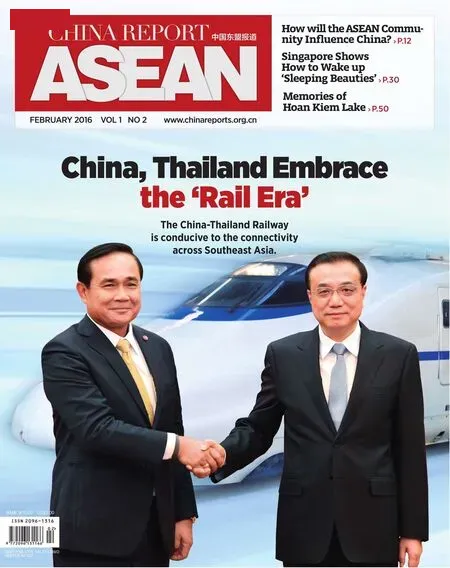Smartphone Transforms Lifestyles
2016-09-26ByTanXingyu
By Tan Xingyu
Smartphone Transforms Lifestyles
By Tan Xingyu
If you travel in China, a smartphone is a great help: you can use it to book an airline ticket and hotel room, make a restaurant reservation, shop online, pay bills, and even participate in an art auction. Along with the rapid development of the mobile Internet, great changes are taking place in every aspect of life in China afecting everyone in an unprecedented manner.
China has more mobile Internet users than any other country - 905 million - with the increase in 4G users and constant drop in the cost of mobile Internet services. As a terminal, a mobile phone is becoming ever more affordable, so people buy new ones frequently. This provides an amazing test base for new ideas. Numerous young people directly turn to their smartphones to surf the Internet, instead of relying on PCs or laptops, thanks to an ever-expanding range of functions.
We're All ‘Mobile Phoners'
As the smartphone becomes ever more ubiquitous, “mobile phoners” can be seen everywhere. This has created a near addiction. “The reason why you are called a‘mobile phoner' is because a mobile phone has become an extension and almost an organ of your body, or another you,” says one expert.
Connie M. Chan, partner of the US venture capital frm Andreessen Horowitz,said the function of communication apps like WeChat is so powerful that they have taken over people's lives. WeChat has many applications bringing great convenience to your life.
To older people, it probably sounds incredible. However, it's becoming a reality. According to a survey by Upperplus, in China, 33.3 percent of those polled said a mobile phone is the frst source of information available to them every day. The first thing they do on waking every morning is to check the latest messages in their mobile phone. Meanwhile, 62.7 percent said the mobile phone is the last source of information before they go to bed every night and they will use it to kill the time before falling asleep.
According to a survey by Upperplus, in China,33.3 percent of those polled said a mobile phone is the first source of information available to them every day. The first thing they do on waking every morning is to check the latest messages in their mobile phone.
A New ‘Half-baked Society'
Do you feel anxious if you forget to take the mobile phone with you or the handset is turned off because the battery is dead? Actually, all of us have got used to contacting friends through mobile phone. “Mobile phoners” with their fngers constantly moving on the touch screen of mobile phone are building a brand-new social relationship - a “half-baked society”, a new term invented by Professor Liu Dehuan with the School of Journalism & Communication, Peking University, in his book Mobile Phoners and Future Trends.
Tere is a joke widely spread on microblogs that the furthest distance in the world is not the one between life and death, but that between you and me when I sit in front of you and yet we communicate via WeChat. In the strong ties based on the blood relationship, you care for someone because they are family; in the weak ties based on card exchanges, you pay attention to someone because they can bring you opportunities. In the half-baked relationship, you keep a close eye on such a person because you have something in common with him or her. Te half-baked society is a smart network flled with ideas, love and hate. You are a knot in the chain. When people pay attention to each other and comment upon each other's views, energy passes through a chain of such knots. Any individual knot can fnd another group of knots with which it can resonate to form a circle simply based on hobby, interest and value.
Statistics conducted by Upperplus show that city singles are much more addicted to surfing the Internet using cell phones as a key component in their daily life. Tis has displaced other traditional communication methods as an important social toolto maintain interpersonal relationships. About 35.1 percent of respondents in the aforementioned survey said they get to know strangers through microblog on mobile phone or visiting some SNS. Of them,the users of WeChat and MiTalk have a stronger desire to meet people through social networks.
Certainly, the IM tool is the most traditional arena. In 2005, Tencent rolled out the QQ app for mobile phone. The China Mobile launched Fetion in 2006. Baidu promoted BaiDuHi to its customers in March 2008. More and more similar products increase competition in this sector. Social platforms like the microblog naturally don't want to be left behind. Besides various kinds of mobile phone clients, the latest version of Sina microblog has also been equipped with the IM tool.
Garbage Time Disappears
In the era of the mobile Internet, the mobile phone has blurred the lines between prime time and garbage time. For “mobile phoners”, “fragmented time” turns out to be “prime time”.
“Commute time” is usually regarded as garbage time for the Internet and TV because people are used to reading newspapers on the way to work or browse the news on the computer after they reach their ofce before starting work. However,the previously-ignored office hours are now becoming prime time of the mobile Internet. Especially in big cities where the tempo of life is fast, mobile phone news during the “commute time” has a higher audience rating than TV news during the traditional “breakfast time”.
Garbage time is disappearing due to the popularity of smartphones. Actually, as time and efciency are highly valued in human society, more changes in geographical location will lead to more fragmented time. At present, new mobile phone apps are making fragmented time ever more meaningful. According to the “long tail theory”,people no longer need real space and concentrated time to communicate with families, friends and the outside world. Tey just need to move their fngers on the touch screen of mobile phone. Fragmented time mostly exists during moves and short stays, and even in private geographical space. All these aspects transform the meaning of “prime time”.

Avid smartphone users on board the Shanghai Subway's Line 2.

A pedestrians' walkway in Chongqing's CBD being divided into two lanes, marked with“No Cell Phones” and “Cell Phones at Own Risk”, reminding tourists not to check their cell phones while walking.
In this way, “fragmented time” is unknowingly turning into “prime time”,which may bring benefit to enterprises. According to the data from Taobao wireless e-commerce, online shopping with mobile phone mostly occurs in typical fragmented time - on the way to ofce and afer work. The lunch break from Monday to Friday sees more mobile shopping activity than the evening rush hour.
And, even this is being overtaken by the evening rush hour at the weekend, with even more mobile shopping orders than the lunch break. Besides, “prime time” also appears when people watch TV and before they go to bed. Tis is because people won't sleep until they turn of their mobile phones afer a fnal check.
